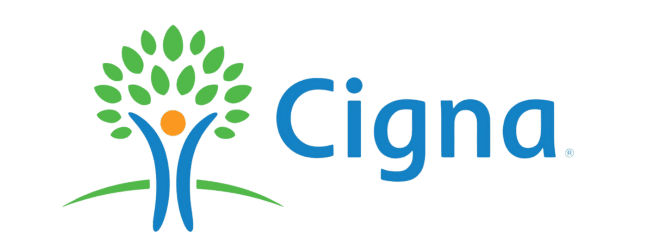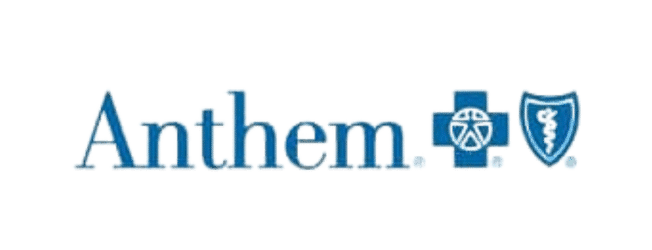Depression Rehabilitation Center Near Me
Searching for a depression rehabilitation center near you? Our comprehensive resource connects you to local centers that offer effective treatment and support.
What is Depression and its Impact?
Depression is a serious mental health condition that impacts thoughts, feelings, and daily life. Symptoms of depression include feelings of sadness, loss of energy, and difficulty concentrating. Depressive disorders, such as clinical depression and Major depression, can interfere with relationships, work, and physical health. Untreated depression can lead to severe symptoms like suicidal ideation and require urgent care.
Importance of Seeking Professional Help
Professional treatment is essential for addressing depressive disorders. A licensed therapist or mental health professional can help develop an individualized treatment plan to address underlying issues and improve quality of life. Seeking help at a depression treatment center ensures access to evidence-based treatment, including Medication management, Individual therapy, and family sessions.
Types of Depression Treatment
Inpatient Treatment Programs
Inpatient care offers a high level of care for individuals with severe depression. At a residential treatment center, patients receive 24-hour support from a compassionate treatment team, including medical staff and mental health therapists. This level of care is ideal for addressing co-occurring disorders and severe symptoms.
Outpatient Treatment Options
An intensive outpatient program or partial hospitalization program offers flexibility for individuals who need structured care but cannot stay overnight. These programs provide daily activities like behavioral therapy and experiential activities.
Individual Therapy
Individual therapy sessions allow patients to work with experienced professionals to explore personal challenges. Cognitive Behavioral Therapy (CBT) and Dialectical Behavior Therapy are common approaches that address behavioral issues and improve coping skills.
Group Therapy
Group therapy promotes peer support and shared experiences. It’s an effective treatment for reducing isolation and encouraging accountability among depressed individuals.
Dual Diagnosis Treatment
For those with co-occurring depression and substance abuse issues, dual diagnosis treatment addresses both conditions. Treating chemical dependency alongside depression improves long-term outcomes.
Medication Management
Prescription medications like antidepressants help manage depression symptoms. A clinical team oversees medication management services to adjust doses as needed.
Alternative Therapies
Holistic therapies, such as art therapy, music therapy, and equine therapy, provide innovative ways to support healing. These therapies improve physical energy and emotional well-being.
What to Expect in Rehabilitation Centers
Initial Assessment and Treatment Planning
Every patient undergoes a comprehensive assessment during the admissions process. This helps create a personalized treatment plan that aligns with individual treatment goals.
Daily Routine and Structure
Centers provide a structured routine, including therapeutic activities and daily stressors management. Activities like adventure therapy and relapse prevention techniques are often included.
Family Support and Involvement
Family therapy sessions play a critical role in recovery. These sessions educate loved ones and strengthen support systems.
Comfort and Support in Recovery
Facilities offer compassionate care with a focus on emotional and physical safety. Patients are supported by a clinical staff committed to fostering a strong foundation for recovery.
Importance of a Supportive Environment
Role of Staff and Counselors
The role of staff and counselors in a depression treatment center is critical to the recovery process. These experienced professionals provide consistent support, ensuring that each patient feels heard and understood. Counselors work closely with patients to address emotional challenges, establish individualized treatment plans, and guide them toward achieving their treatment goals. The clinical team includes mental health professionals, therapists, and nursing staff who offer compassionate care and evidence-based interventions. Their dedication helps patients feel safe and supported, fostering an environment conducive to healing. The presence of skilled staff creates a foundation for lasting progress and empowers patients to develop the tools needed for a healthier, more fulfilling life.
Peer Support Opportunities
Peer support is a vital component of the recovery journey. Engaging with others who have faced similar struggles provides a sense of connection and reduces feelings of isolation. Group therapy sessions, offered as part of most treatment plans, allow patients to share their experiences, learn from others, and build a strong support network. The camaraderie among peers fosters encouragement and accountability, helping individuals stay motivated in their recovery. Peer relationships formed during treatment often extend beyond the program, offering ongoing encouragement as patients transition back into their daily lives. By sharing challenges and celebrating successes together, patients gain valuable insights and renewed hope.
Aftercare Planning and Continuing Support
Aftercare is an essential part of maintaining progress after leaving a treatment center. Effective aftercare planning begins during the recovery process, ensuring a seamless transition to life outside the facility. Patients are provided with access to community resources, alumni programming, and continued individual counseling. These services support long-term success by reinforcing the skills learned during treatment. Many programs include relapse prevention strategies and regular check-ins with therapists or case managers to address emerging challenges on an as-needed basis. Aftercare plans may also involve participation in support groups, ensuring individuals remain connected to a recovery-oriented community. With a strong focus on continuity, aftercare helps patients sustain their progress, manage daily stressors, and build a resilient foundation for a brighter future.
Types of Therapeutic Approaches
Cognitive-Behavioral Therapy (CBT)
Cognitive-Behavioral Therapy (CBT) is a widely used and highly effective treatment approach for depression. It focuses on identifying and reshaping negative thought patterns that contribute to emotional distress. Patients learn to challenge automatic negative thoughts and replace them with healthier, more constructive perspectives. CBT also teaches practical coping skills for managing daily stressors, enhancing emotional regulation, and improving decision-making. This structured therapy equips individuals with tools they can use in everyday life to maintain long-term recovery.
Mindfulness and Meditation Practices
Mindfulness and meditation are essential components of many holistic treatment programs. These practices encourage individuals to stay present and fully engaged in the moment. By focusing on breathing techniques and guided meditations, patients can reduce anxiety, lower stress levels, and enhance emotional clarity. Over time, mindfulness promotes self-awareness, helping individuals recognize triggers and respond to challenging emotions more effectively. These practices also improve physical health, reduce symptoms of depression, and foster overall well-being.
Psychodynamic Therapy
Psychodynamic therapy is a long-term approach that delves into the root causes of depression. It helps individuals explore unresolved emotional conflicts, past traumas, and unconscious patterns that influence their current behaviors and feelings. By uncovering these underlying issues, patients gain deeper insight into their emotions and relationships. This therapy is particularly beneficial for those with chronic depression or co-occurring disorders, as it addresses the foundational causes of mental health challenges.
Holistic Therapy Options
Holistic therapy emphasizes treating the whole person—mind, body, and spirit—rather than focusing solely on symptoms. Programs often incorporate alternative therapies like yoga, meditation, and nutritional counseling. These practices improve physical energy, promote emotional balance, and strengthen resilience against relapse. Additionally, activities like art therapy, music therapy, and equine therapy allow individuals to express themselves creatively, reduce stress, and build self-esteem. Holistic approaches complement traditional treatments, enhancing overall recovery outcomes.
How to Choose the Right Rehabilitation Center
Evaluating Facility Philosophies
When selecting a depression treatment center, it is important to understand the facility’s treatment philosophy. Look for centers that prioritize evidence-based treatment while incorporating holistic approaches. Effective centers offer individualized care tailored to the unique needs of each patient. Understanding the center’s values and mission ensures alignment with your recovery goals.
Location and Accessibility
The location of the treatment center plays a vital role in recovery. Choosing a facility that is easily accessible can simplify travel for both patients and their families. A convenient location also supports ongoing care after completing the program, allowing patients to attend follow-up sessions or family therapy sessions as needed.
Costs and Insurance Options
Finances should not be a barrier to recovery. Research the costs of various programs and verify whether insurance plans cover the services. Many centers offer flexible payment options, financial aid, or sliding-scale fees. Understanding these options ensures a smoother admissions process and reduces stress during treatment.
Reading Patient Testimonials
Patient testimonials provide valuable insights into the quality of care at a center. Look for reviews that highlight positive experiences with the clinical staff, mental health therapists, and compassionate treatment teams. Testimonials mentioning effective treatment methods, holistic programming, and long-term success stories can guide you in making an informed decision.
By expanding the descriptions of therapeutic approaches and evaluation criteria for rehabilitation centers, this version provides a more comprehensive overview for individuals seeking treatment for depression.
Conclusion: Taking the First Step Towards Recovery
Tennessee Behavioral Health offers a range of depression treatment programs designed to meet the unique needs of each individual. Whether you need inpatient treatment or outpatient services, our clinical team is here to support your journey to a healthier life. Contact us today to begin your path to long-term recovery.
FAQ's
Our center provides care for various types of depression, including clinical depression, Major depression, chronic depression, and co-occurring depressive disorders. We tailor our personalized treatment plans to meet the unique needs of each individual, addressing both the symptoms of depression and any underlying issues such as trauma or substance use disorders.
We offer a range of evidence-based and holistic therapies to support recovery. These include Cognitive-Behavioral Therapy (CBT), Dialectical Behavior Therapy (DBT), art therapy, music therapy, and equine therapy. Additionally, we provide Individual therapy sessions, family therapy sessions, and group counseling. Our comprehensive approach ensures every aspect of your mental, emotional, and physical health is addressed.
Yes, we specialize in dual diagnosis treatment. Many individuals with depression also experience co-occurring disorders such as anxiety, PTSD, or substance abuse issues. Our treatment teams include experienced professionals trained to address both conditions simultaneously, ensuring a more effective recovery process and long-term success.
Inpatient treatment programs provide 24-hour care in a structured environment, ideal for individuals with severe depression or those requiring intensive support. Outpatient treatment options, such as intensive outpatient programs (IOP) or partial hospitalization programs (PHP), allow patients to receive therapy while continuing their daily activities. Both levels of care include individualized treatment plans designed to meet your specific recovery goals.
















